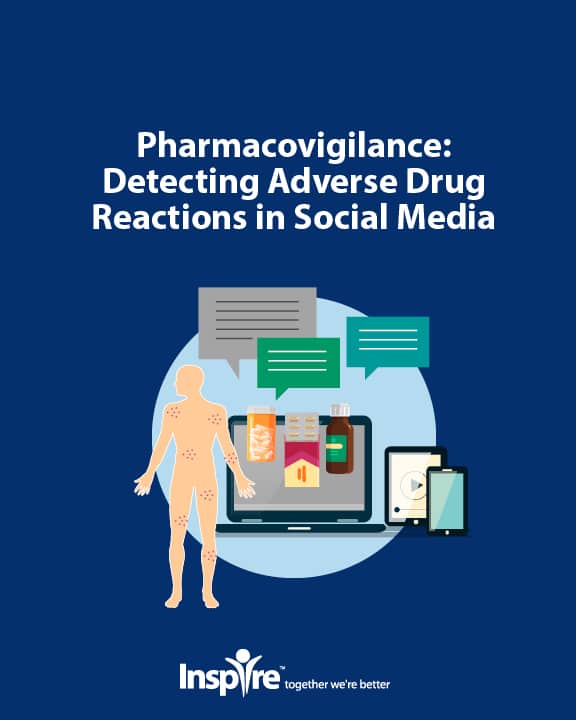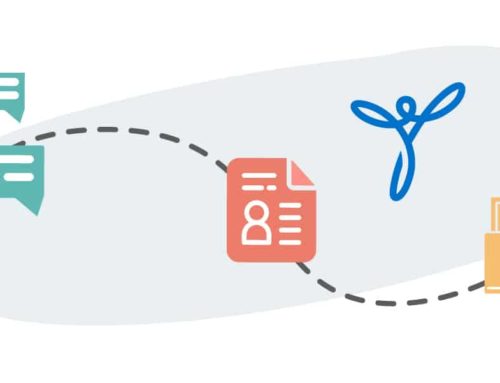Doing Better and Feeling Worse: Patients with Long-term Conditions Describe Drug Side Effects

By Kathleen Hoffman, PhD, MSPH
We live in fortunate times; people are now described as “living with” conditions. As an article in BioMed Central Health Services Research put it:
Where previous generations experienced episodes of infectious and acute disease that were often rapidly lethal because there were few effective treatments,… major changes in the epidemiological and demographic landscape have led to increasing numbers of people with chronic or long term conditions such as diabetes and asthma; living with and surviving potentially life-limiting conditions, for example, breast cancer, myocardial infarction, stroke; and experiencing degenerative and neuro-degenerative conditions often associated with aging.1
Living with a disease often means trying to manage symptoms with complex medication combinations and schedules. How well are we collectively doing?
“About half of patients with chronic diseases don’t take their medication as prescribed.”2
That quote is from a relatively recent article in NEJM-Catalyst that sought to analyze why so many patients don’t take their medications as prescribed, and what could be done about it. In Engaging Patients to Optimize Medication Adherence,2 the authors outline five factors they see as contributing to non-adherence, including
“…social and economic factors; patient’s perceptions, motivations, and levels of physical/cognitive impairment; issues related to the specific medication therapy; the medical condition being treated; and the health care system in which the person seeks care.”2
From the Patient Perspective
But from the patient perspective, it may be simpler than that. What about side effects? Inspire members in public posts are very open about stopping medications because of side effects. A migraine sufferer said,
I have been on every preventative medication my neurologist can try. The results were either they did not work or the side effects were too bad and I had to stop them. I tried [drug name] but it gave me heart palpitations so I [am] not able to take it or meds that are like it. ~Inspire Member
She’s not alone in looking for a relief that’s not complicated with other effects. Side effects are often a barrier to medication adherence in migraine sufferers, and, as a report titled Side effects associated with current and prospective antimigraine pharmacotherapies pointed out, newer drugs still have problems: The known side effects of new medications still “induce some cardiovascular and central side effects that lead to poor treatment adherence/compliance.”3
NBCNews reported Too Many People Stop Taking Heart Drugs, Study Finds4 after JAMA Cardiology found that at least 20% of patients stopped taking statins two years after a heart attack, and twice that many were taking lower than prescribed doses. The article doesn’t give reasons why patients did this, but some on the Inspire forums cited side effects:
I am finding I can’t tolerate statins due to pain… The statins have attacked my feet and achilles tendons and I hurt all over. ~Inspire Member
I had horrible side effects the first time I was on statins, tried five different ones. Doctor finally told me to stop taking them. ~Inspire Member
Listening and Talking to Patients
Two formal studies on the problem of medication non-adherence,2,5 recommended that health-care professionals interact directly with patients to find out what the patient needs, but both studies envisioned formal programs, such as educational nurse visits. In the meantime, many patients, knowing how important adherence is to recovery, turn to social media to ask for advice on managing their discomfort. For example, a member of the Kidney Cancer Association Support Community on Inspire asks:
Anyone have any good recommendations regarding management of hand/foot syndrome resulting from targeted therapies? ~Inspire Member
Replies included advice on using various emollients and protecting the skin from pressure by wearing gloves or socks.
A search for the term “managing side effects” on Inspire results in over 50,000 posts. In all of the communities, members are discussing their side effects and sharing tips on easing them. Members frequently discuss dietary, self-care, and medication changes, and they recommend products.
Obviously, the FDA only approves a drug when the clinical trial determines that the benefits of the drug to combat a disease outweigh the potential adverse effects associated with it. That conclusion, however, is from the scientific and statistical perspective; once the drug is out there, the patients start looking for help from the voice of experience.
With the volume of data available in social media, researchers have the opportunity to investigate — for any medication — what side effects are interfering with medication adherence, and to which subsets of patients. However, Patient Focused Drug Development suggests asking some key questions in advance, including what aspects of the planned treatment would affect them the most? What side effects would cause non-adherence? At what point would they decide the treatment wasn’t worth it, and look for alternatives?
The FDA is encouraging just this kind of input using Externally-Led Patient Focused Drug Development Meetings (EL-PFDD). In 2018, the National Kidney Foundation held an EL-PFDD meeting to add to the FDA’s understanding of the patient perspective on Alport Syndrome (AS).6 In the agenda, they specifically identified that one benefit to pharmaceutical companies from direct patient input is that “Drug sponsors [can] learn certain disease symptoms or treatment side effects that are, or are not, tolerable by the patients and can develop drugs accordingly.” The FDA’s guidelines for conducting an EL-PFDD meeting can be found here.
Side effects aren’t the only factor causing non-adherence. All treatments are going to have side effects that vary with every patient. But adherence can only improve when drug developers know, in advance, what the client base wants — and wants to avoid — in the experience of taking the treatment. Ask patients what they want — they’ll tell you.
Read our new publication with Mayo Clinic cardiologist, Farris Timimi,MD in the Journal of Medical Internet Research — JMIR  “Patient-Reported Outcomes in Online Communications on Statins, Memory, and Cognition: Qualitative Analysis Using Online Communities”7
“Patient-Reported Outcomes in Online Communications on Statins, Memory, and Cognition: Qualitative Analysis Using Online Communities”7
Inspire offers a trusted community to patients and caregivers. Our goal with this blog, this website and our content is to provide the life science industry access to the true, authentic patient voice. In so doing, we support faithful operationalization of patient-centricity. Take a look at our case studies, eBooks and news outlet coverage.
References
1https://www.researchgate.net/publication/263517295_Rethinking_the_patient_Using_Burden_of_Treatment_Theory_to_understand_the_changing_dynamics_of_illness
2https://catalyst.nejm.org/optimize-patients-medication-adherence/
3https://www.tandfonline.com/doi/full/10.1080/17425255.2018.1416097
4https://www.nbcnews.com/health/health-news/too-many-people-stop-taking-heart-drugs-study-finds-n748336
5https://www.ahajournals.org/doi/full/10.1161/jaha.115.002606
6https://www.kidney.org/content/national-kidney-foundations-externally-led-patient-focused-drug-development-el-pfdd-meeting#PFDDa
7https://www.jmir.org/2019/11/e14809/






